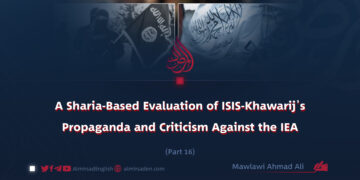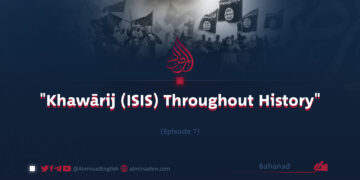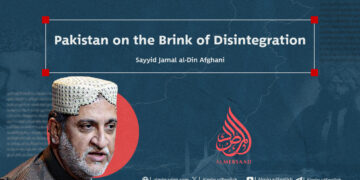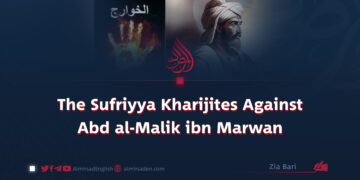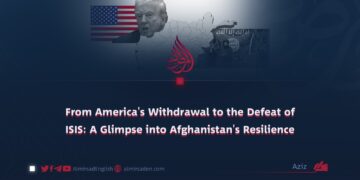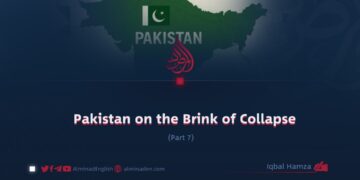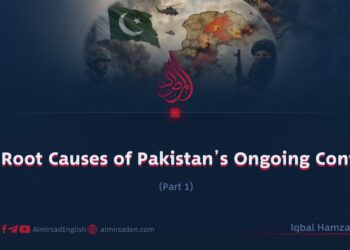Part 10
Author: Abu Rayyan Hamidi
The Arrival of Some Quraysh at the Muslims’ Water Basin and Their Killing
As the two armies prepared for confrontation at Badr, some members of the disbelieving Quraysh forces approached the water basin that the Messenger of Allah (PBUH) had strategically established for the Muslim army. Their intention was to drink from it, but they were all killed—except for Hakim ibn Hizam, who survived. In time, Hakim embraced Islam, and throughout his life as a believer, whenever he swore an oath, he would say, “By the One who saved me at Badr!”
Internal Dissent Among the Quraysh: Opposition to Abu Jahl
As part of their military strategy, the Quraysh assigned Umayr ibn Wahb al-Jumahi to scout the Muslim camp. After a thorough survey, he returned with a report:
“Their numbers are around three hundred. Allow me to search the surrounding valley for any hidden reinforcements.”
Upon his return from an extended reconnaissance, he confirmed:
“There are no ambushes or reinforcements. But O Quraysh, I saw signs of inevitable death—the camels of Yathrib bring nothing but destruction. I swear, not one of them will die without having killed one of you. Their strength lies in the sword, and their secrets are buried in its steel. Think wisely, O Quraysh!”
His ominous words stirred unease among the Quraysh. At that moment, another figure of wisdom, ‘Utbah ibn Rabi‘ah—encouraged by Hakim ibn Hizam—stood up and offered counsel.
“What benefit will you gain from this battle? Even if you kill Muhammad and his companions, you will find no joy in the faces of the survivors—for each one of you will have killed a father, brother, or close relative. Return and let Muhammad be. Leave the Arabs to themselves.”
Utbah then said to Hakim, “Go to Abu Jahl and tell him that I, as the ally of Ibn al-Hadrami, will bear full responsibility for his blood money.” Abu Jahl, however, reacted with anger and contempt:
“Utbah has become a coward. We shall not retreat until Allah decides between us and Muhammad. Besides, isn’t his own son Abu Hudhayfah among Muhammad’s followers? That is what frightens him!”
When these remarks reached ‘Utbah, he retorted with indignation:
“The coward is none other than Abu Jahl—this perfume-soaked braggart will soon learn whose heart truly harbors fear.”
Sensing that the calls for peace might gain traction, Abu Jahl cunningly manipulated emotions by sending word to ‘Amir ibn al-Hadrami, the brother of the slain man, saying:
“Your ally Utbah wants to retreat even when this is the perfect time for vengeance!”
Upon hearing this, ‘Amir tore his clothes in grief and began crying out in anguish, “Wā ‘Amrah! Wā ‘Amrah!” The army, inflamed by emotion and a thirst for revenge, was stirred into a frenzy. Reason was drowned by rage, and Utbah’s wise counsel was forgotten.
The Provocation at the Basin
In the midst of this emotional fervor, a Qurayshi warrior named Aswad ibn ‘Abd al-Asad al-Makhzumi charged forth from the enemy ranks, swearing:
“I will drink from their basin, destroy it, or die trying!”
Before he could reach it, he was intercepted by Hamzah ibn ‘Abd al-Muttalib—the Lion of Allah and His Messenger (PBUH). Hamzah struck him down with a decisive blow. Aswad, though gravely wounded, still crawled toward the basin, but Hamzah’s second blow ended his life and ambition alike.
The Challenge of Individual Combat
Motivated by Abu Jahl’s provocations, ‘Utbah stepped forward alongside his brother Shaybah and son Walid, calling out: “Who will face us in single combat?”
In response, three brave Ansar—‘Awf ibn al-Harith, Mu‘awwidh ibn al-Harith, and ‘Abdullah ibn Rawahah—stepped forward. The Quraysh asked: “Who are you?”
They replied, “We are from the Ansar.”
The Quraysh retorted, “We seek our equals from our own tribe. O Muhammad, send forth our peers from among your people!”
The Messenger of Allah (PBUH) then called out: “Hamzah, ‘Ali, and ‘Ubaydah ibn al-Harith—step forward!” The three warriors emerged, with veiled faces. Upon identifying themselves, the Quraysh responded, “You are indeed worthy opponents.”
The duels commenced:
‘Ali faced Walid and swiftly struck him down.
Hamzah faced Shaybah and likewise dispatched him.
‘Ubaydah, the eldest, engaged ‘Utbah. They exchanged fierce blows until both were wounded. ‘Ubaydah’s leg was severed, and he collapsed. Hamzah and ‘Ali rushed to assist and together slew ‘Utbah.
‘Ubaydah was carried back to the Prophet (PBUH) and succumbed to his injuries on the fourth or fifth day of the campaign, at a place called Safra while returning to Madinah.
About these noble warriors and this momentous clash, Allah revealed:
“هَذَانِ خَصْمَانِ اخْتَصَمُوا فِي رَبِّهِمْ فَالَّذِينَ كَفَرُوا قُطِّعَتْ لَهُم ثِيَابٌ مِنْ نَارٍ يُصَبُّ مِنْ فَوْقِ رُءُوسِهِمُ الْحَمِيمُ”
“These are two adversaries who have disputed concerning their Lord. But as for those who disbelieved, garments of fire will be cut out for them; scalding water will be poured upon their heads.”
(Surah Al-Hajj: 19)
The Prophet (PBUH) witnessed Ubaydah in his final moments and said:
“I testify that you are a martyr.”
Before his martyrdom, Ubaydah recited these heartfelt lines:
فإن یقطعوا رجلي فإنی مسلم
أرجی به عیشا من الله سالما
و ألبسني الرحمن من فضل منه
لباسا من الإسلام غطی المساویا
“If they cut off my leg, I am still a Muslim,
In return, I hope for a safe life from Allah.
The Most Merciful has dressed me with a garment from His grace—
A garment of Islam that has covered all my flaws.”
































